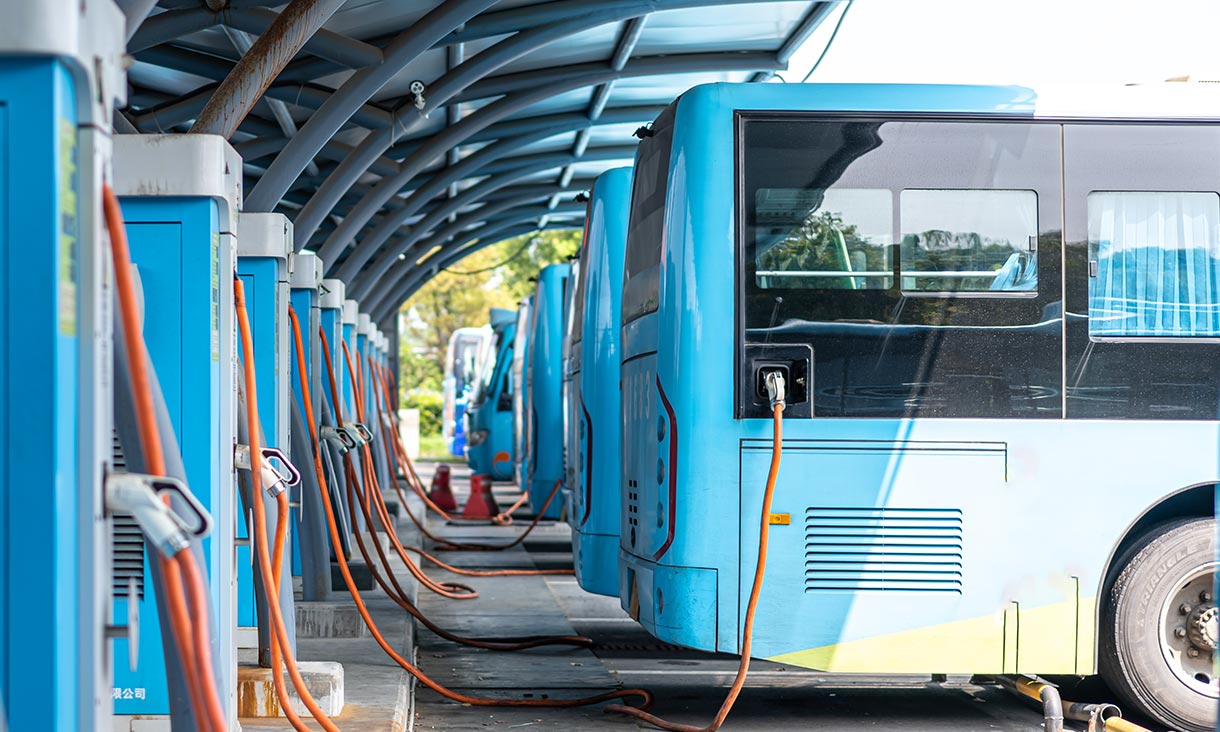This project investigated the economic, climate and electricity market implications of public bus fleet electrification based on the Melbourne Metropolitan region.
Firstly, the research introduced a novel fleet-level analysis, under tariff-based least-cost depot charging to compare the total cost of ownership (TCO) over 12 years of battery electric vehicle (BEV) against diesel bus fleets in a transitioning power sector, and we investigated the impacts on electricity demand and carbon emissions, across purchase years between 2022 and 2039.
Secondly, we analysed potential fleet-charging strategies. An open-source, BEV bus fleet charging optimisation model was developed to minimise either the final electricity costs (tariff), wholesale prices (spot), or indirect greenhouse gas emissions (mitigation) related to fleet operations, and we examined the impact of optimising one of these over the other two on fleet-related emissions and operational cost.
Thirdly, we examined the charging and network infrastructure required for a fully electrified metropolitan Melbourne bus network, using overnight depot charging. This includes analyses of minimum and maximum fleet charging capacities, and the infrastructure augmented total cost of ownership.

Dates
2022 - 2025
Project outcomes
Publications
Several studies in the area of public transport electrification:
- Economics of public transport electrification: A case study from Victoria, Australia
- The economics of public transport electrification: The charging dilemma
- The economics of public transport electrification: When does infrastructure investment matter?
Policy advice
Details and conclusions from the three studies are included in policy advice and a roadmap for Victoria, to help stakeholders to better understand the full implications of public transport electrification and further explore EV policy, strategy and regulation.
Open-source code
The open-source codes used to analyse information for these studies have been provided freely to other researchers. This novel tool can be used to evaluate public transport electrification in other jurisdictions, different pathways to transition, and can provide the basis for analysing the health benefits/healthcare cost reductions from lower vehicle emissions.
Key people
- Dr Zsuzsanna Csereklyei
- Dr Kelvin Say
- Dr Changlong Wang
- Felix Gabriel Brown
Relevant collaborators
- Collaborators on the VHESIF fund include several RMIT departments, Monash and La Trobe Universities as well as C4NET.
Funding source
- Victorian Higher Education State Investment Fund (VHESIF)